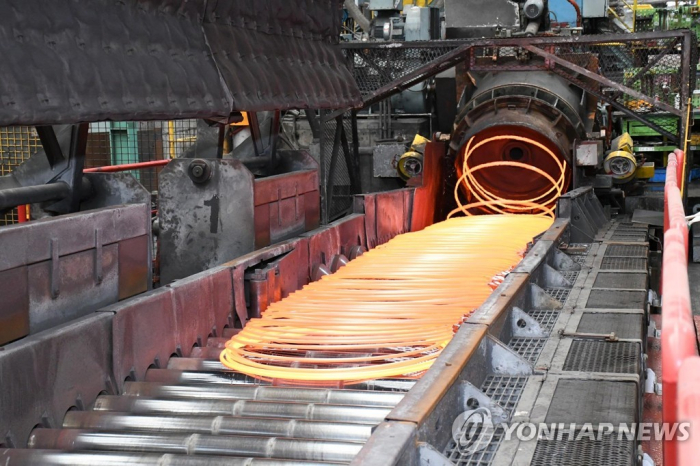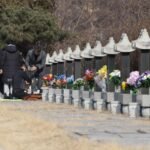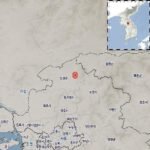
POSCO, the world’s seventh-largest steelmaker, said on Tuesday it has shut down a wire rod mill in South Korea as rising exports from China exacerbated a global oversupply.
POSCO shuttered the No. 1 wire rod mill at Pohang Steel Works in the southern port city of Pohang, North Gyeongsang Province. The mill has produced 28 million tons of wire rods since it started operations on Feb. 28, 1979.
Wire rod is a rolled steel product made from semi-finished steel and is used for a range of applications from vehicles to construction materials.
The leading South Korean steelmaker decided to shut it down considering the prolonged global supply glut, increasing domestic demand for cheaper imports and the plant’s aged equipment.
CHEAP, IMPORT-DOMINATED PRODUCTS
“The global wire rod capacity was 200 million tons in 2023 but demand was only 90 million tons,” POSCO said in a statement.
“Chinese wire rod mills with a total capacity of 140 million tons exported their products to the neighboring countries pushing down global wire rod prices as demand in the country remained weak on the sluggish domestic construction sector.”
POSCO, dented by rising imports of cheap Chinese and Japanese products, halted operations in July at one of its still mills at the Pohang complex, about 340 kilometers (211.3 miles) southeast of Seoul.
The unit of POSCO Holdings Inc. aims to reduce low-cost, import-dominated products and focus on high-value-added items such as spring steel and bearing steel.
“We plan to reorganize the wire rod business by cutting the output of cheap products and concentrating on high-value-added products,” said a POSCO official.
By Hyeon-woo Oh
ohw@hankyung.com
Jongwoo Cheon edited this article.















